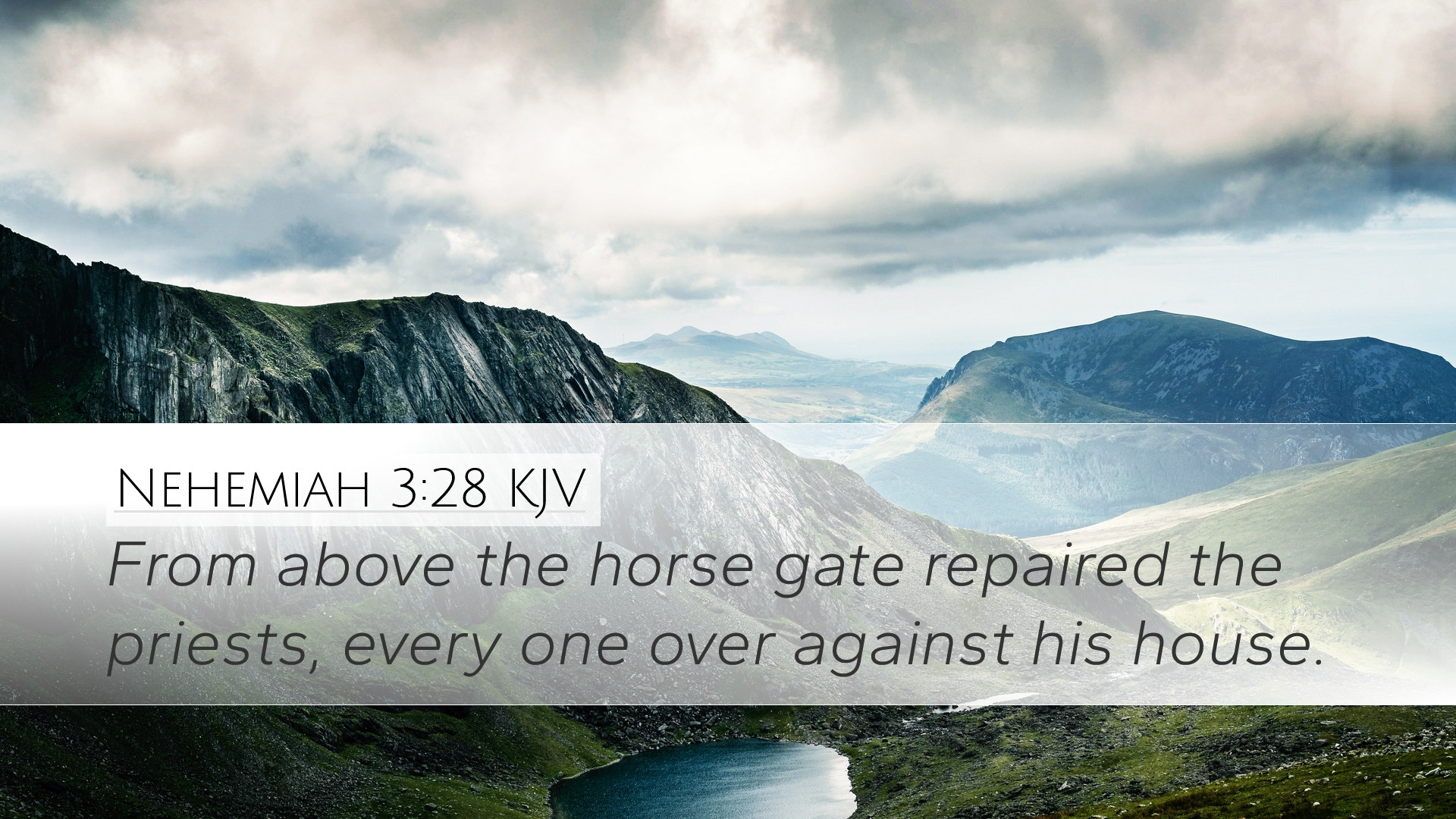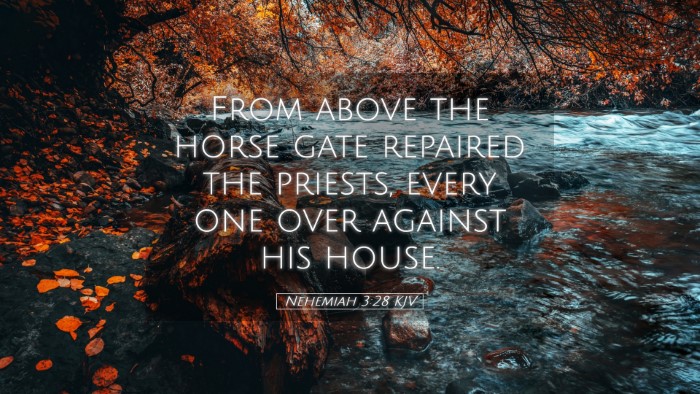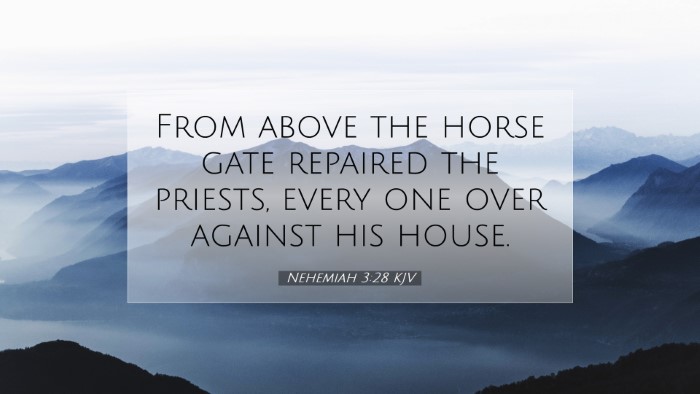Commentary on Nehemiah 3:28
Verse Text: "Above the horse gate repaired the priests, every one over against his house." (Nehemiah 3:28, KJV)
Contextual Overview
Nehemiah 3 details the various groups and individuals involved in the reconstruction of the walls of Jerusalem following the Babylonian exile. This chapter is significant for illustrating the communal effort and detailed organization of the rebuilding process.
Key Themes
-
Collective Responsibility:
This verse highlights the collective responsibility of the priests in the rebuilding effort. Their work "over against his house" signifies personal involvement in the restoration of their community, which is an essential theme. Each individual's contribution was vital for the collective achievement.
-
Significance of the Horse Gate:
The horse gate, mentioned here, holds particular significance. It was likely a point of entry for military and nobility, symbolizing strength and readiness. This implies a spiritual and physical readiness of the people to defend their city, showing the importance of both spiritual leadership and practical action.
Commentary Insights
Matthew Henry's Commentary:
Matthew Henry emphasizes the role of the priests in the rebuilding process. As spiritual leaders, their involvement in physical labor demonstrates a crucial connection between faith and action. Henry notes that the priests did not shy away from manual work, which dispels any notion that their spiritual duties exempt them from communal labor. He advocates for a model where leaders embody service and contribute significantly to the restoration of their community.
Albert Barnes' Notes:
Barnes focuses on the strategic importance of the location of repairs. He draws attention to the idea that the Horse Gate was a vital area, indicating a need for protection and surveillance. Barnes stresses that the individual roles played by the priests in rebuilding indicate a deep spiritual commitment to safeguarding their community both spiritually and materially. He interprets this as an implicit call for the clergy to be deeply involved in the affairs of the church and community.
Adam Clarke's Commentary:
Clarke offers a practical interpretation of the verse, pointing out the dual significance of the Horse Gate. He considers that it represents both a physical gateway and a metaphorical entry into spiritual warfare. Clarke suggests that the priests' work signifies the necessity of divine assistance in rebuilding efforts, likening it to our own lives where spiritual vigilance is needed to fortify against adversities. He encourages believers to see every act of service as critical in the broader context of God's mission.
Application for Today
This verse speaks volumes about the necessity of collaboration in ministry and community life. By reflecting on the contributions of priests during the rebuilding of Jerusalem's wall, modern readers are reminded of the need for leaders to engage in both spiritual teachings and practical deeds. The role of clergy must extend beyond preaching to embodying a life of service.
Moreover, the emphasis on personal responsibility shows that every individual has a stake in the health and vitality of the community. Pastors, students, theologians, and scholars can draw lessons on the importance of collective effort, personal investment in community, and the necessity of being prepared for both spiritual and physical battles.
The Horse Gate, representing readiness to respond to crises, implores modern believers to actively participate in their community's defense against moral and spiritual decline. The insights gleaned from this verse compel a deep reflection on how individuals and leaders can contribute to the restoration and protection of their respective communities today.


